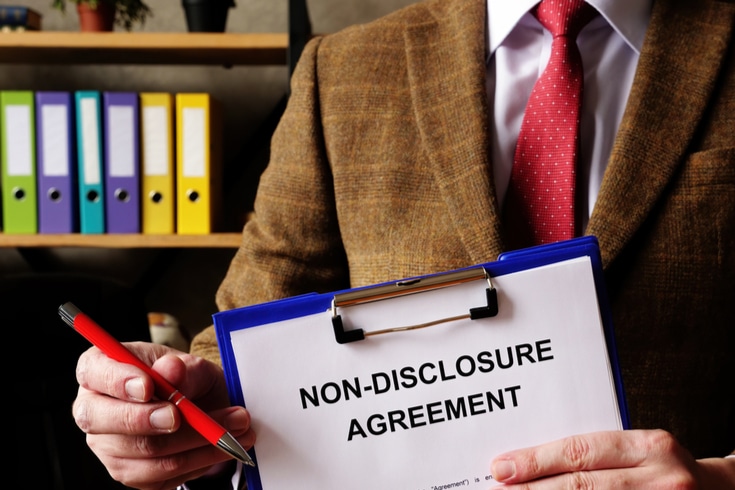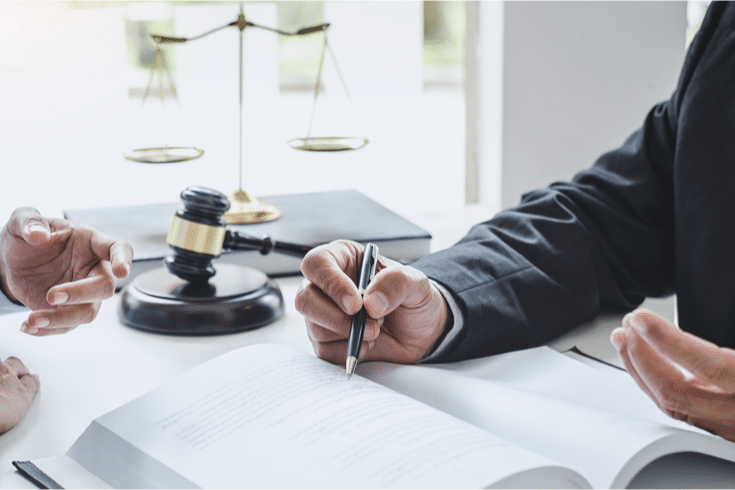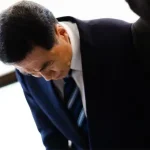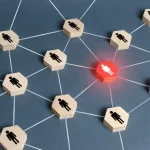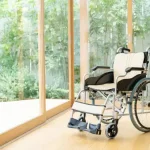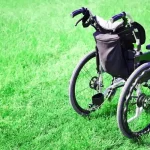Explaining the Laws that Related Ventures Should Understand with the Lifting of Restrictions on Level 4 Drone Flights
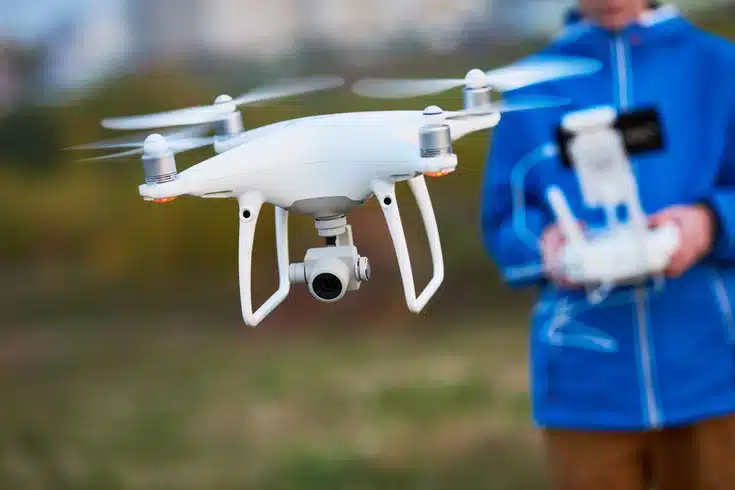
In 2022 (Reiwa 4), amendments to the Japanese Aviation Law were made in preparation for Level 4 drone flights, significantly expanding the potential for drone utilization in various businesses. However, due to the rapid expansion of drone usage in recent years, the current situation is that there is little awareness of the legal regulations in place.
In order to ensure the safety of drone flights and to conduct wireless communications legally, it is necessary to be careful not to violate various laws when introducing drones.
In this article, we will explain the laws that you should be aware of when starting a drone-related business or introducing drones.
What is Drone-Related Business?
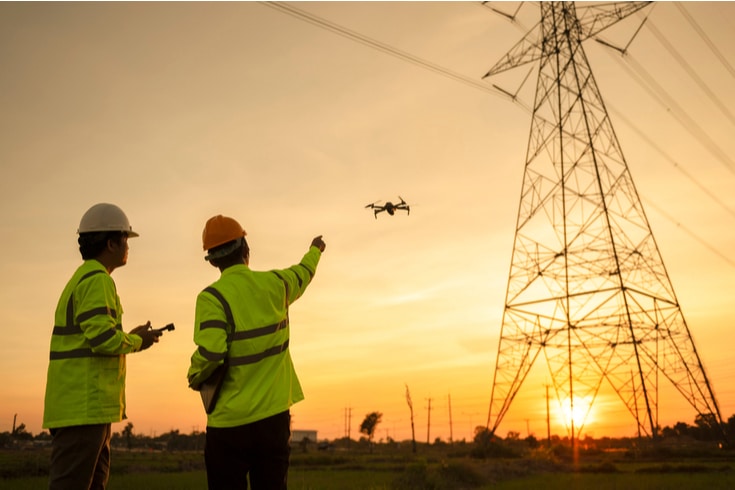
The drone market has been rapidly developing in recent years and is a new business field that is attracting attention worldwide. It is said that there are 39 industrial and commercial applications in 15 fields related to drone business in Japan, and it is attracting attention as a business field with great potential.
For example, in the infrastructure inspection field, which accounts for 40% of the drone business, demonstration experiments are currently being conducted on the delivery of medicines and medical supplies in emergencies. The establishment of guidelines for the delivery of medicines and disaster prevention plans and agreements is planned in collaboration with industry, academia, and government.
Also, while the development of drone taxis that carry people is progressing overseas, it is said that there are many advantages that helicopters do not have. Drones are particularly noted for their low noise and eco-friendliness. In order to reduce the cost of pilots, autonomous driving is also being developed.
8 Laws Related to Drones
When flying drones outdoors, the “Japanese Aviation Law” and the “Japanese Unmanned Aircraft Flight Prohibition Law” are cited as legal regulations. Additionally, it would be beneficial to be aware of the following related laws and regulations.
- Japanese Aviation Law
- Japanese Unmanned Aircraft Flight Prohibition Law
- Japanese Radio Law
- Japanese Civil Code (Invasion of Privacy, Right of Publicity, Personal Information Protection Law, Damages Compensation)
- Japanese Road Traffic Law
- Japanese Law for the Protection of Cultural Properties
- Ordinances, Metropolitan Park Law
- Natural Parks Law, National Forest Law, Coast Law, Port Regulations Law, Maritime Traffic Safety Law
Aviation Law (Japanese Ministry of Land, Infrastructure, Transport and Tourism)
In Japan, laws related to drone flight have previously regulated drones and similar devices weighing more than 200g under the Aviation Law. However, from June 20, 2022, a drone registration system will be implemented, and drones and similar devices weighing more than 100g will be required to be registered with the Ministry of Land, Infrastructure, Transport and Tourism, and to display a registration ID on the drone body.
Furthermore, if a drone is used without registration, the user may be subject to imprisonment for up to one year or a fine of up to 500,000 yen.
In December 2022, comprehensive measures including drone certification, pilot licensing, and the establishment of control systems for safety assurance were implemented towards achieving Flight Level 4 (autonomous flight out of visual range in populated areas).
There are eight regulations regarding the method of flight:
- Prohibition of flight while under the influence of alcohol or drugs
- Prohibition of dangerous flight
- Prohibition of night flight
- Prohibition of flight out of visual range
- Maintaining a distance of more than 30m from people and buildings etc.
- Prohibition of flight over assembly areas
- Prohibition of transporting hazardous materials
- Prohibition of dropping objects
Please note that approval from the Minister of Land, Infrastructure, Transport and Tourism is required to perform the above actions 3 to 8.
Small Unmanned Aircraft Flight Prohibition Law (Japanese National Police Agency)
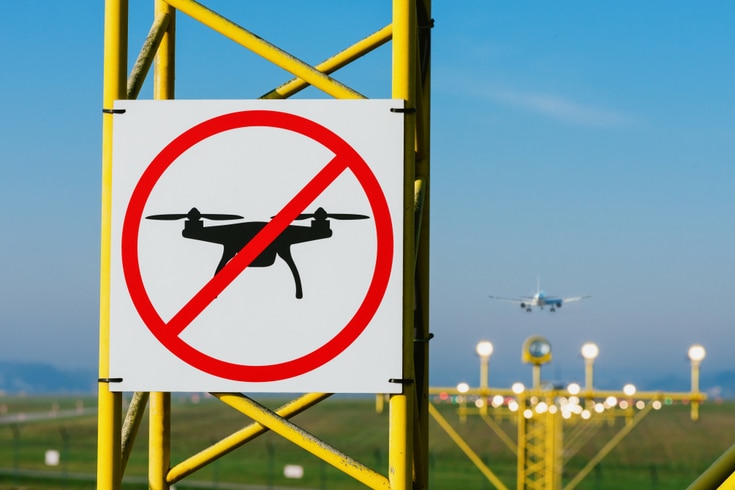
One of the laws that must be remembered when flying a drone is the “Law Concerning the Prohibition of Flying Small Unmanned Aircraft, etc. in the Airspace over Areas Surrounding Important Facilities (hereinafter referred to as the Small Unmanned Aircraft Flight Prohibition Law)”.
This law prohibits the flight of drones in and around important facilities designated by the government. Drones can fly over the airspace of important national facilities due to their ease of use and mobility. However, if misused, they can pose a significant risk of terrorism and other dangers.
In 2015, there was an incident where a small multi-copter fell on the roof of the Prime Minister’s Office. This incident led to the enactment of this law.
According to Article 13 of the Small Unmanned Aircraft Flight Prohibition Law, “Violators are subject to imprisonment for up to one year or a fine of up to 500,000 yen (Article 13 of the Small Unmanned Aircraft Flight Prohibition Law).
Regulated Small Unmanned Aircraft, etc.
The flight of small unmanned aircraft, etc. subject to regulation is as follows:
- Flying a small unmanned aircraft
- Flying a person using specific aviation equipment
“Drones, etc.” refers to airplanes, rotary-wing aircraft, gliders, and airships that cannot be boarded by people, and can be flown by remote control or automatic control.
(Example) Drones (multi-copters), RC planes, single rotors, fixed-wing aircraft, pesticide-spraying helicopters, etc.
“Unmanned aircraft” refers to “drones, etc.” that weigh 100g or more (the total weight of the aircraft body and battery).
“Specific aviation equipment” refers to balloons with control devices, hang gliders, etc. that allow people to fly and change altitude and course.
Reference: Tokyo Metropolitan Police Department | About the Small Unmanned Aircraft Flight Prohibition Law[ja]
No-Fly Zones
The flight of small unmanned aircraft, etc. is prohibited in the airspace over the premises/areas of designated facilities (Red Zone) and generally 300m around them (Yellow Zone).
Facilities that fall under the “Red Zone” include:
- Important national facilities, etc. (National Diet Building, Prime Minister’s Official Residence, Supreme Court, Imperial Palace, etc.)
- Offices of crisis management administrative agencies
- Target political party offices
- Target foreign embassies, etc.
- Target defense-related facilities
- Target airports
- Target nuclear power plants
etc.
In addition, temporary facilities may be added in conjunction with the visit of foreign dignitaries, etc.
However, the provisions on the prohibition of flight of small unmanned aircraft, etc. do not apply in the following cases as exceptions:
- Flight by the manager of the facility or a person who has obtained their consent
- Flight conducted in the airspace over the land owned by the landowner, etc.
- Flight conducted in the airspace over the land for which the consent of the landowner has been obtained by a person who has obtained such consent
- Flight conducted for the purpose of carrying out the duties of the national or local government
However, in the Red Zone, even if:
- The flight is conducted in the airspace over the land by the landowner or occupier
- The flight is conducted for the purpose of carrying out the duties of the national or local government
the consent of the manager of the facility is required.
Japanese Radio Law
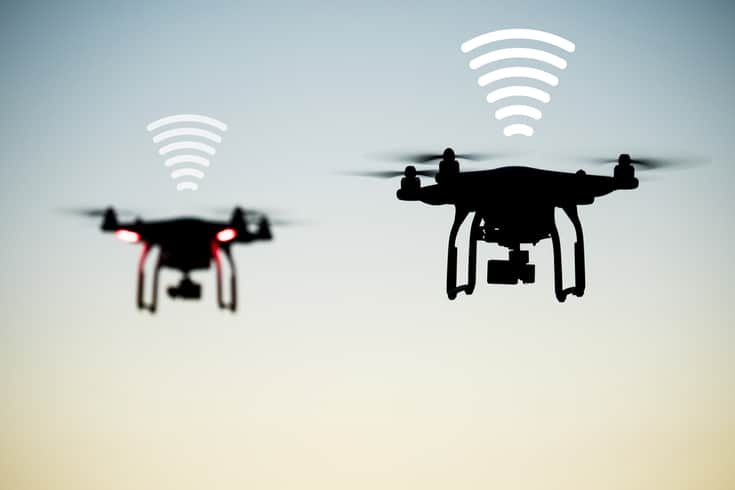
To utilize radio waves, you must use wireless equipment that complies with domestic technical standards, obtain a license or registration from the Minister of Internal Affairs and Communications, and establish a radio station.
However, this is not necessary for weak radio stations and some low-power radio stations.
For example, wireless devices such as smartphones that have received the “Technical Standards Conformity Certification” and “Technical Standards Conformity Approval” from the Ministry of Internal Affairs and Communications, and bear the “Technical Conformity Mark” are permitted to communicate in Japan. Generally, commercially available drones are rarely required to obtain a radio station license or radio operator qualification stipulated by the Radio Law.
However, caution is required as drones imported from overseas may not have the “Technical Conformity Mark”.
In cases where industrial drones are used, the “5.7GHz band” radio waves are often used, and to fly such drones, a “Radio Station License” and a qualification of “Third Class Land Special Radio Engineer” or higher are required.
Also, if you want to equip a drone with a mobile communication system, you need to obtain a “Practical Test Station License”.
Civil Law (Invasion of Privacy, Right of Publicity, Personal Information Protection Law, Damages)
When using drones or similar devices for filming, it is necessary to ensure that individuals are not identifiable and copyrighted materials are not captured. It is also important to handle the captured data carefully to prevent any leaks.
Furthermore, if the operation of a drone infringes on the rights of others, including property rights, there may be a possibility of being held liable for damages under the Japanese Civil Code (Articles 709 and 710).
Japanese Road Traffic Act
Launching, landing, and flying drones or similar devices on public roads can obstruct traffic. Therefore, it is necessary to obtain road usage permission from the Chief of Police (Article 77 of the Japanese Road Traffic Act).
Japanese Law for the Protection of Cultural Properties
It is necessary to confirm in advance with the owner whether the area where you intend to fly drones or similar devices is a zone where photography and flight are prohibited for the purpose of copyright protection and prevention of damage.
Ordinance and Tokyo Metropolitan Park Law
It is necessary to check whether the area where you intend to fly drones or similar devices is a zone where filming or flying is prohibited (In Tokyo Metropolitan Parks, it is completely prohibited).
Japanese Natural Parks Law, National Forest Law, Coastal Law, Port Regulations Law, Maritime Traffic Safety Law
When flying over natural parks, national forests, coasts, and seas (underwater), the following are the authorities to apply for permission:
- Natural Parks → Ministry of the Environment or Prefectural Governments
- National Forests → Ministry of Agriculture, Forestry and Fisheries (Forestry Agency / Forest Management Bureau)
- Coasts and Ports → Port Authorities or Local Public Bodies
- Maritime Territory → Japan Coast Guard
- High Seas → No permission required
Conclusion: Consult a Lawyer Before Starting a Drone Business
We have comprehensively explained the laws that you should be aware of in relation to drone-related businesses.
In 2022 (Reiwa 4), significant amendments to the Japanese Aviation Law concerning drones were implemented, expanding the potential for drone utilization. However, when conducting business using drones, it is crucial to ensure that these laws are not violated. In particular, it is essential to consider the risks to people and property associated with flying and to fly safely. Depending on the location and circumstances of the flight, it is necessary to obtain appropriate permissions and approvals, and penalties will be imposed for violations.
Because specialized legal knowledge is required for regulations related to drones, we recommend consulting a lawyer in advance.
Introduction to Our Firm’s Measures
Monolith Law Office is a legal office with high expertise in both IT, particularly the internet, and law. Launching a drone business requires highly specialized legal knowledge. Our firm analyzes the legal risks of businesses that have already started or are about to start, based on various legal regulations, and aims to legalize the business as much as possible without stopping it. Details are described in the following article.
Areas of practice at Monolith Law Office: Corporate Legal Affairs for IT & Startups[ja]

